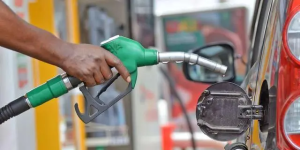
Recent developments indicate that depot owners in Nigeria have increased the ex-depot price of Premium Motor Spirit (PMS), commonly known as petrol, to approximately ₦950 per liter. This adjustment, representing a rise of about 4.74%, is expected to lead to higher pump prices for consumers nationwide.
Factors Influencing the Price Increase
The primary driver behind this price escalation is the recent surge in global crude oil prices. Nigeria’s Bonny Light crude has risen to $80 per barrel from $73 per barrel in the previous week. This increase has directly impacted the cost of refined petroleum products, prompting depot owners to adjust their prices accordingly.
Implications for Consumers
As depot prices rise, filling stations are likely to adjust their pump prices to reflect the increased costs. Currently, petrol prices at various filling stations range between ₦935 and ₦1,050 per liter. Consumers should anticipate potential price fluctuations in the coming weeks as the market responds to these changes.
Broader Economic Impact
The increase in petrol prices is expected to have a ripple effect on the Nigerian economy. Higher fuel costs can lead to increased transportation and production expenses, potentially contributing to inflationary pressures. This development underscores the need for strategic measures to mitigate the impact on consumers and maintain economic stability.
The recent hike in ex-depot petrol prices to ₦950 per liter signals an impending increase in pump prices across Nigeria. Stakeholders, including consumers and policymakers, should monitor the situation closely and consider appropriate responses to address the economic implications of rising fuel costs.

